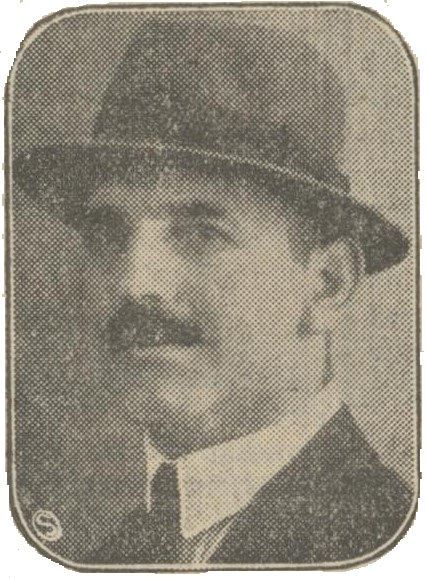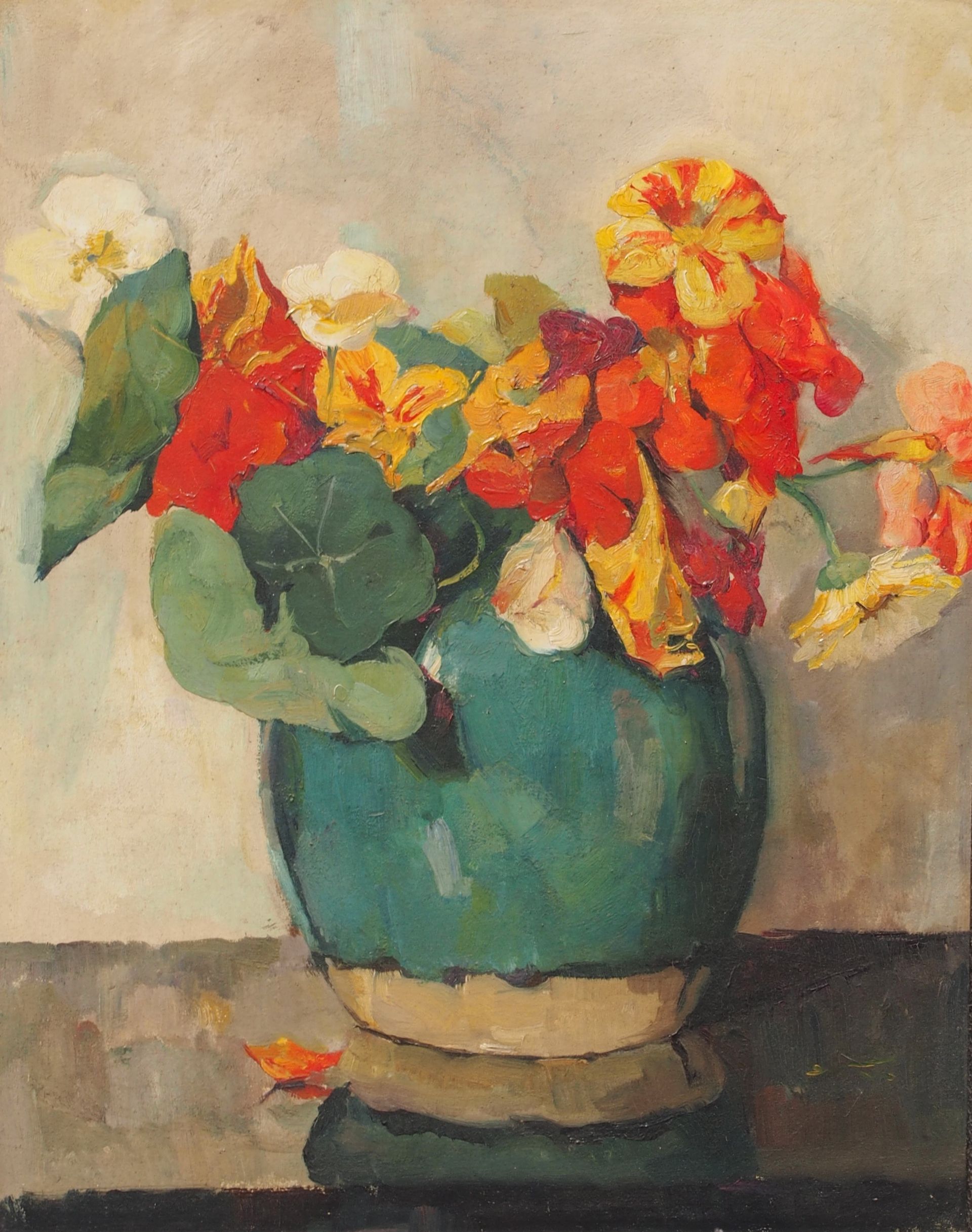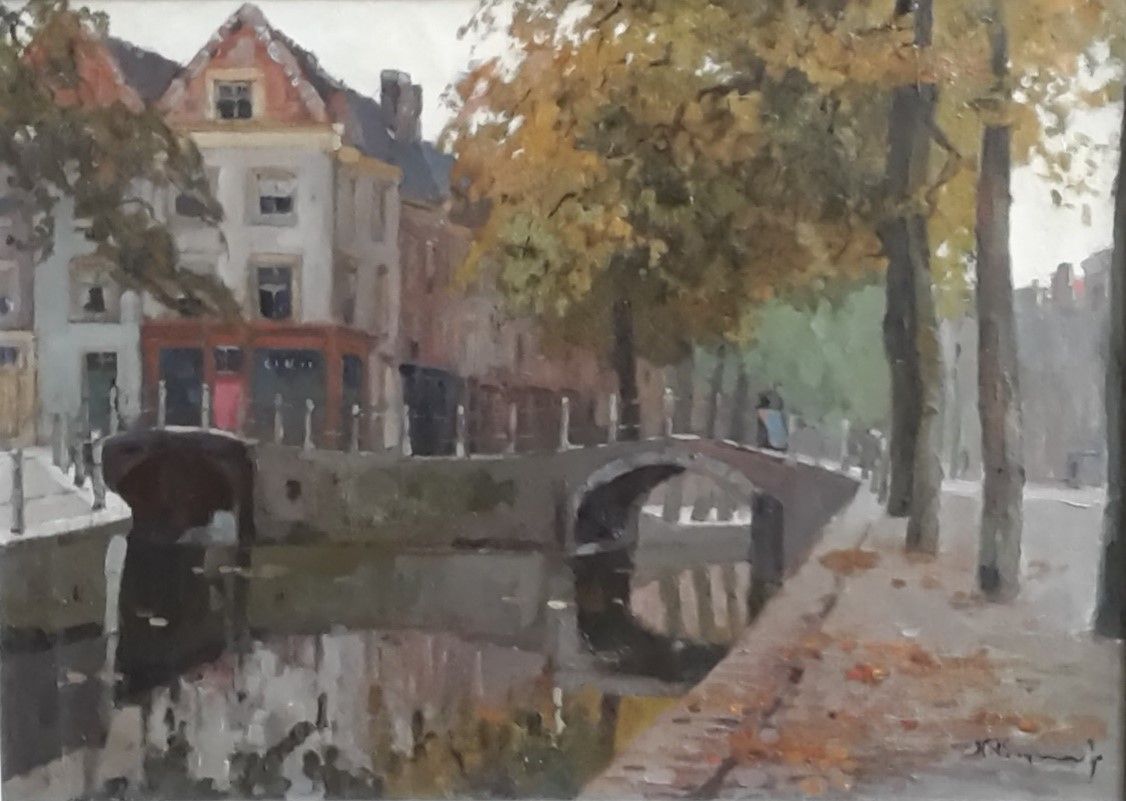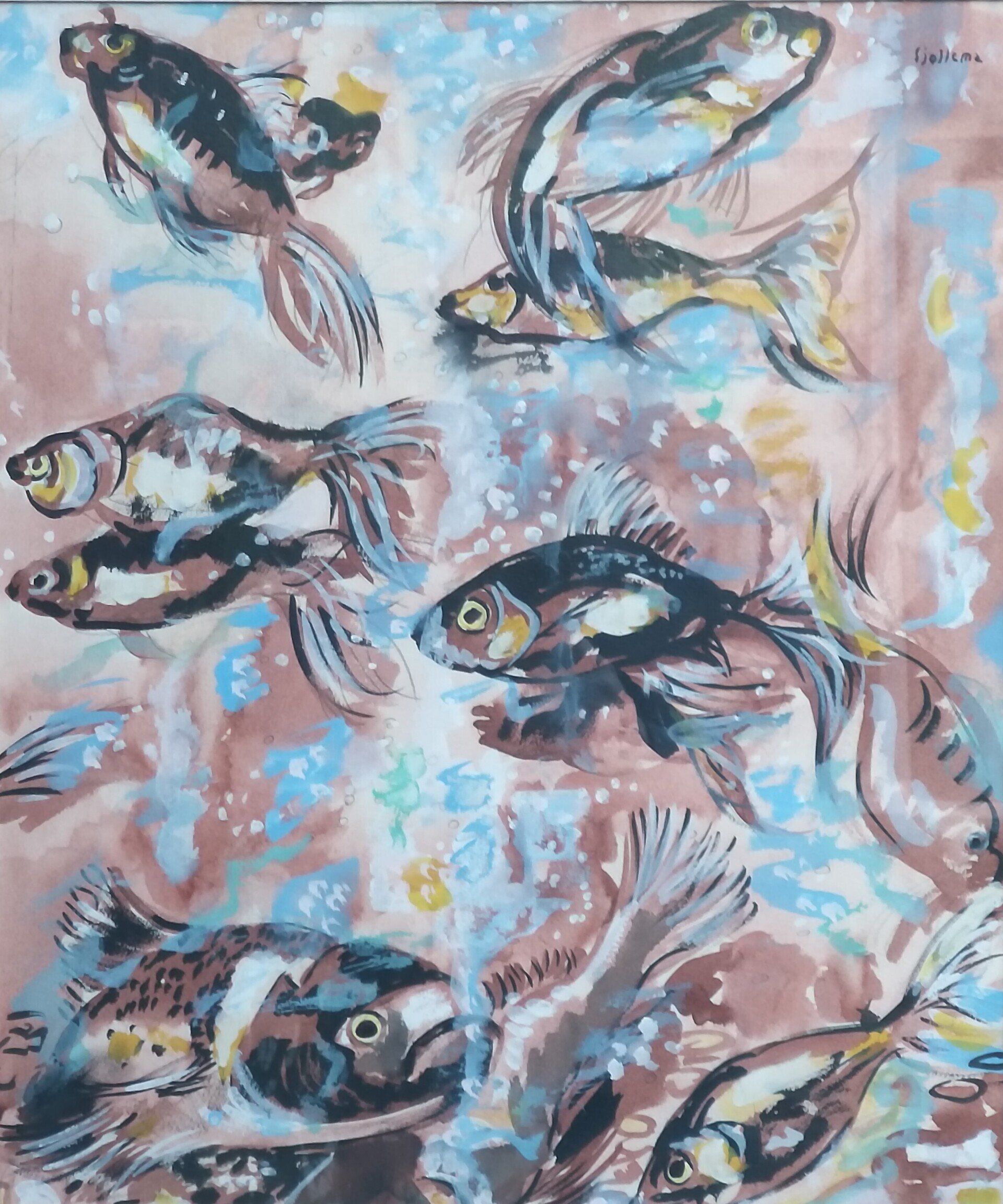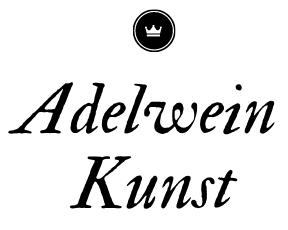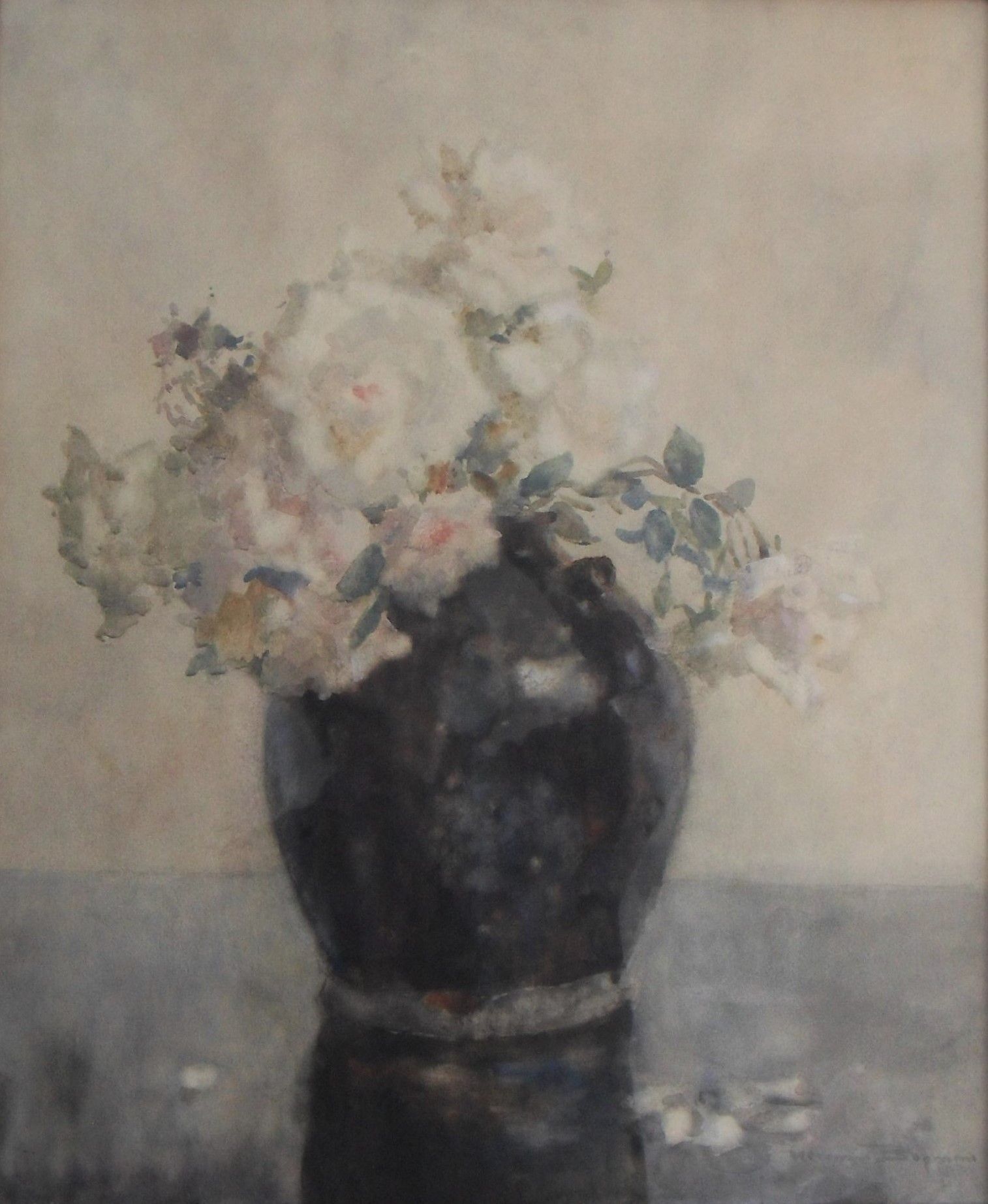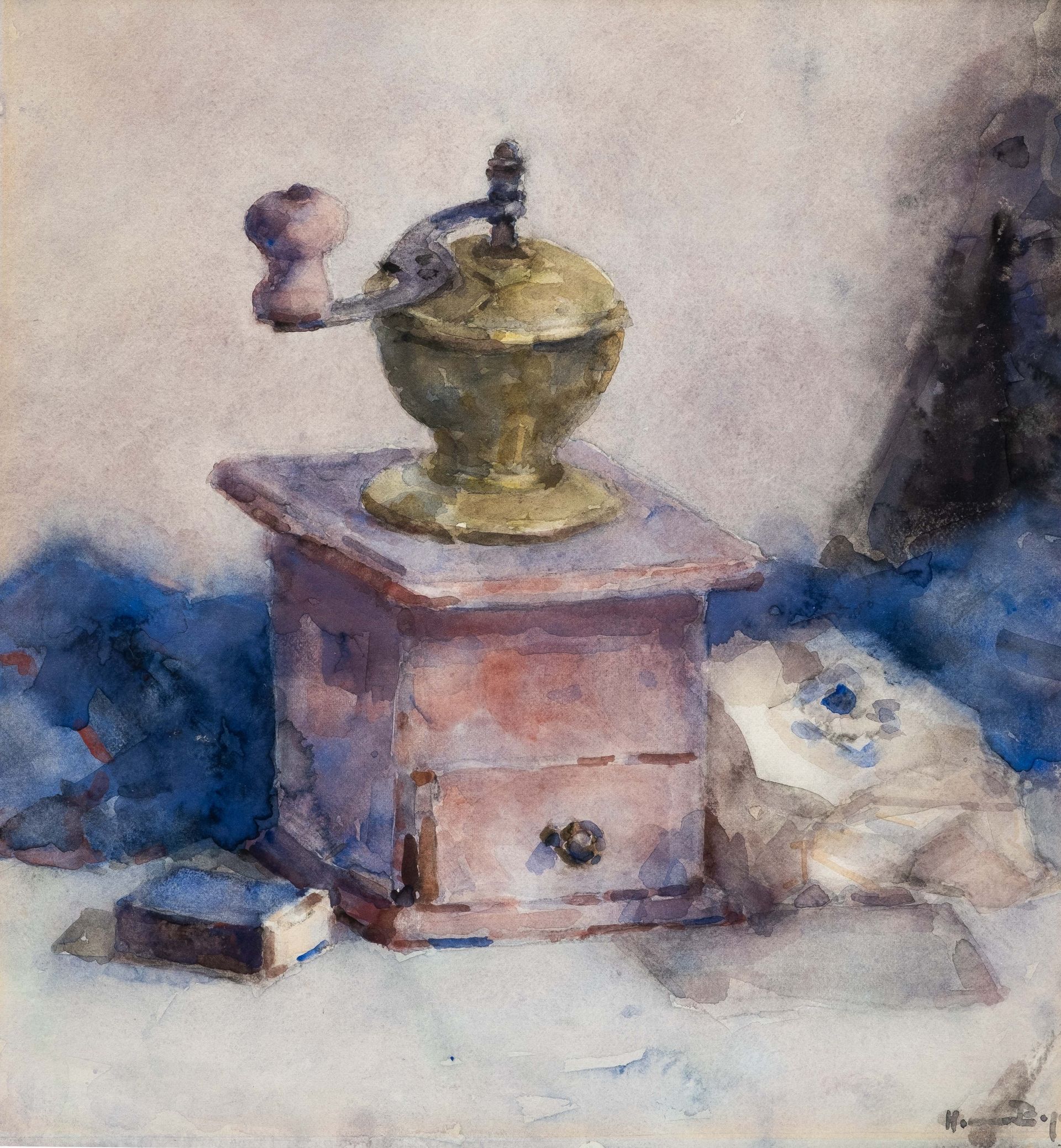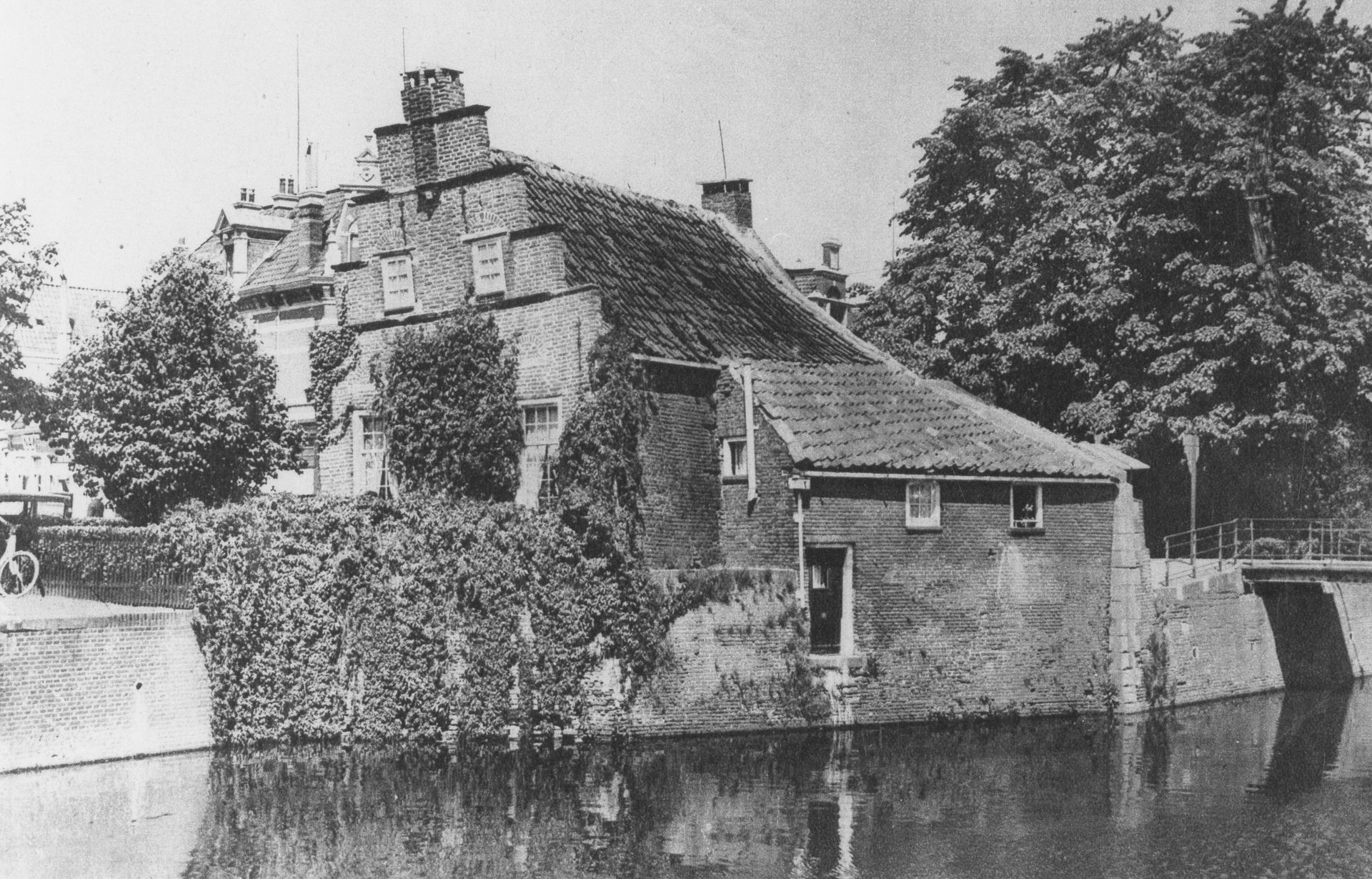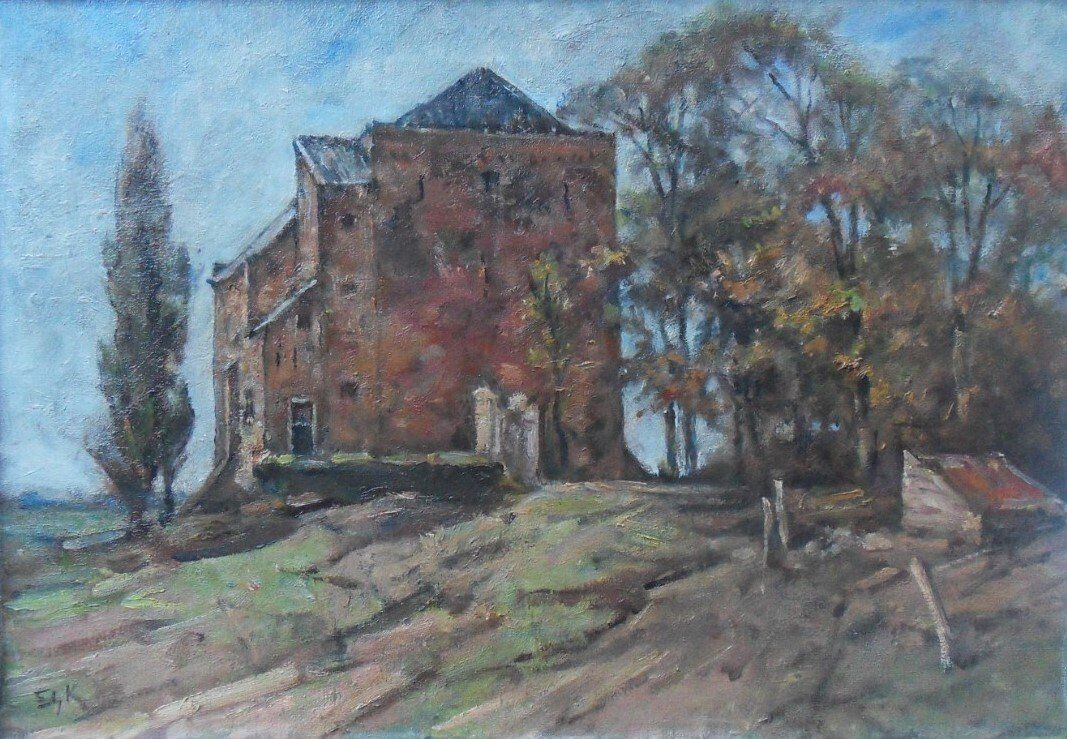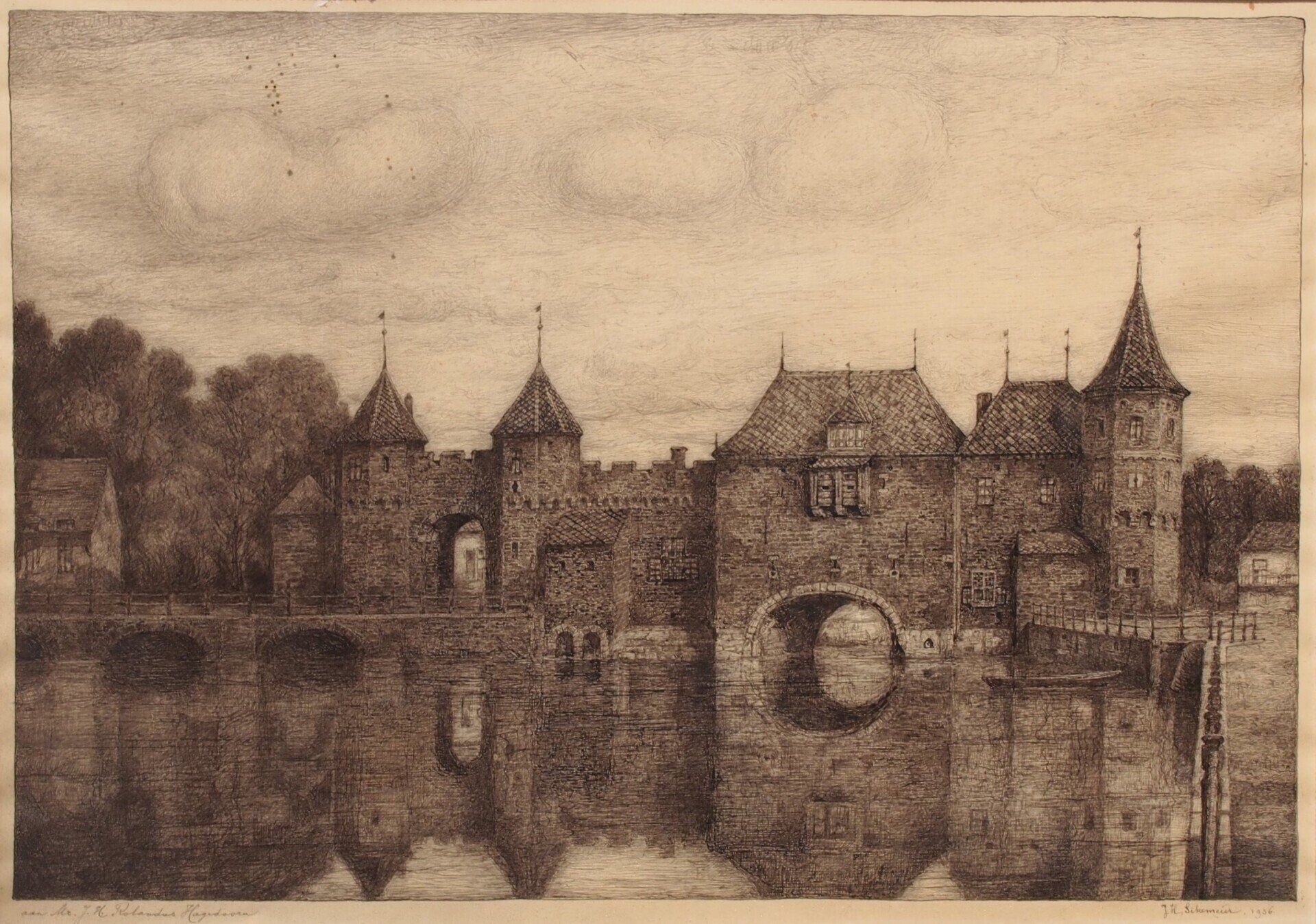Herman Bogman: The Evolution of a Master Watercolourist from The Hague
Herman Bogman (1890-1975), an artist whose unmistakable talent and self-critical approach promised that he would become a painter who attracts attention, is inextricably linked with the Hague Watercolourists.
His artistic journey, which began with oil paintings and unfolded in the refined art of watercolouring, shows a continuous quest for expression and innovation. Bogman's work, rich in detail and emotion, embodies a deep appreciation for the subtle power of colour and light.
In the 1930s, Bogman began to explore his talent through oil paintings, primarily focusing on capturing cityscapes, farmyards, and still lifes.
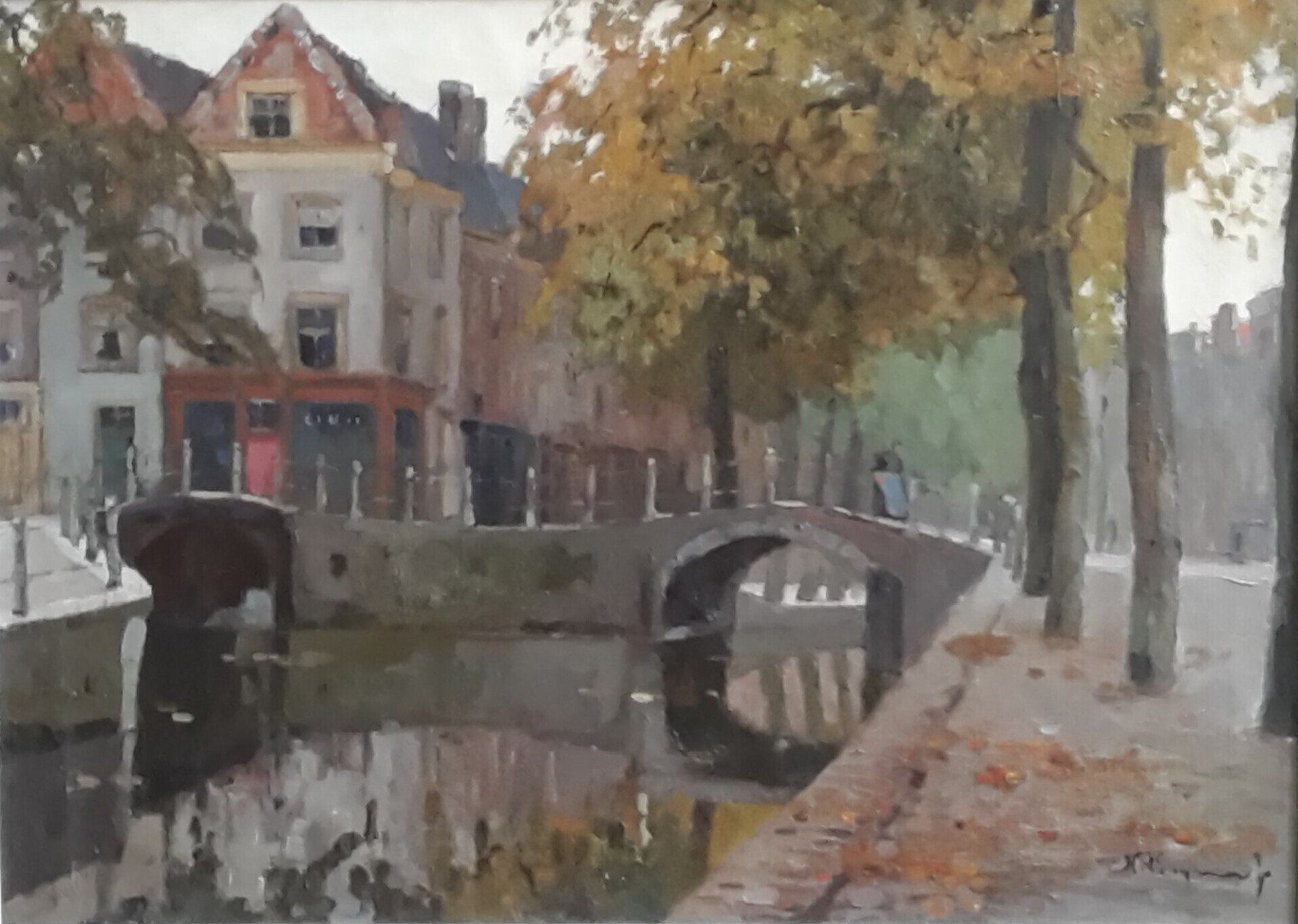
His magnificent cityscapes of Amsterdam with a view of the Nicholas Church or his harbour views of Rotterdam are well-known, as is the depiction of pre-war Delft with the Gasthuislaan-Brabantse Turfmarkt-Achterom shown here. But in his still lifes, he also manages to create a specific atmosphere, as in the beautiful still life with lilacs and a stone Chinese Foo dog.
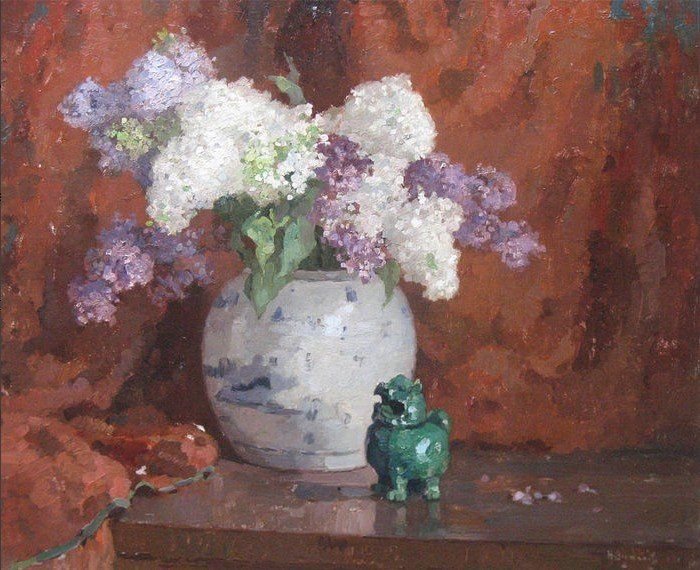
One of his most notable works from this period is a painting of the Seine in Paris, seen from the Pont Neuf towards the Pont au Change, with Le Conciergerie on the right side. This work stands out for its ability to capture the liveliness and rhythm of Paris, highlighting the reflections on the flowing water and the gradations of a historically grown city with its bluegrey fading masses of houses, emphasized with a richness of colours and textures characteristic of his oil painting technique.
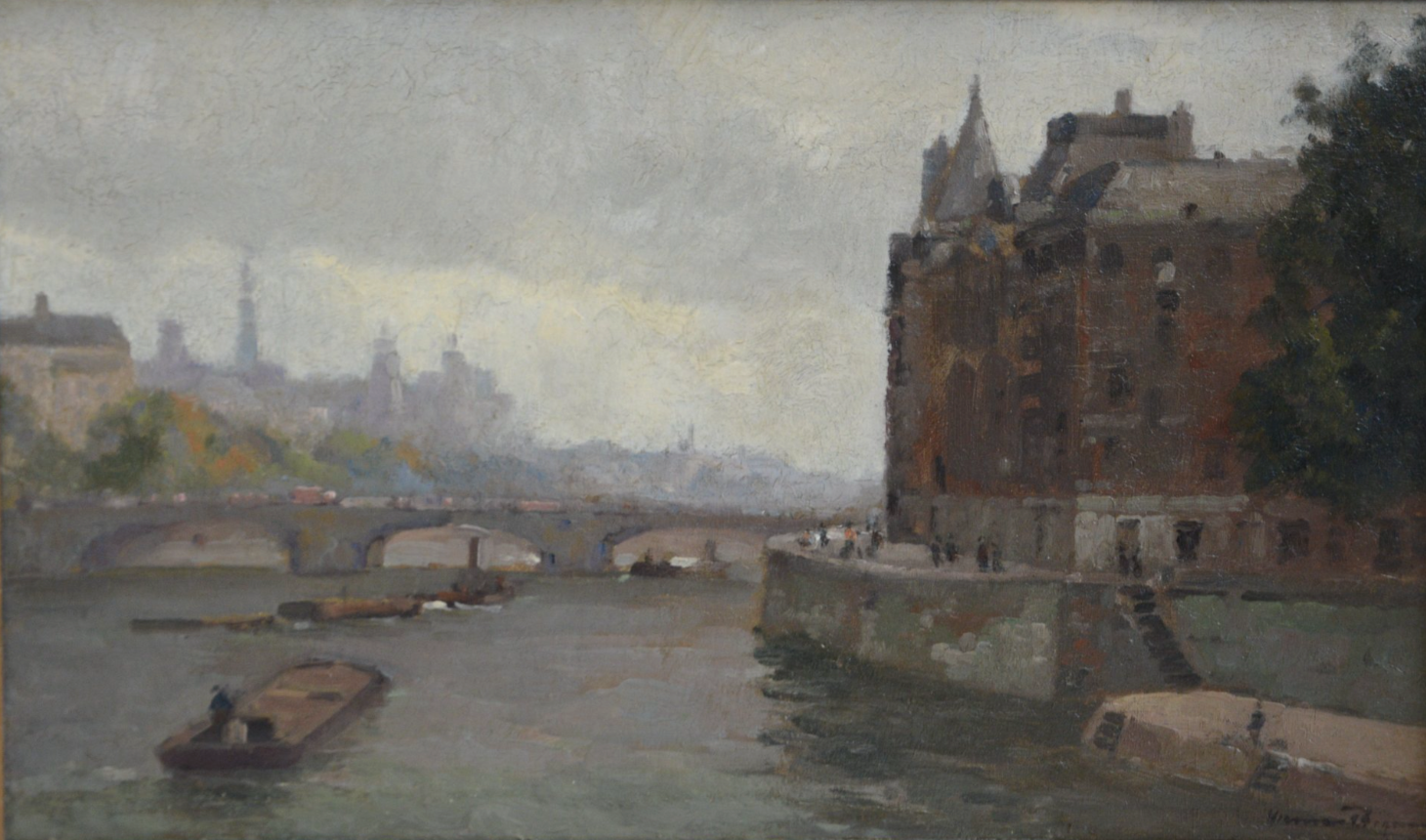
As his career progressed, Bogman transitioned to watercolour, a medium that allowed him to further explore his fascination with light and transparency. His watercolours from Paris, such as those of the Pont Neuf and the Jardin du Luxembourg, show a breezy interpretation of the Parisian city, but also a remarkable development in his artistic approach, managing to give the viewer a sense of place and moment with delicate colour nuances and controlled brushstrokes.
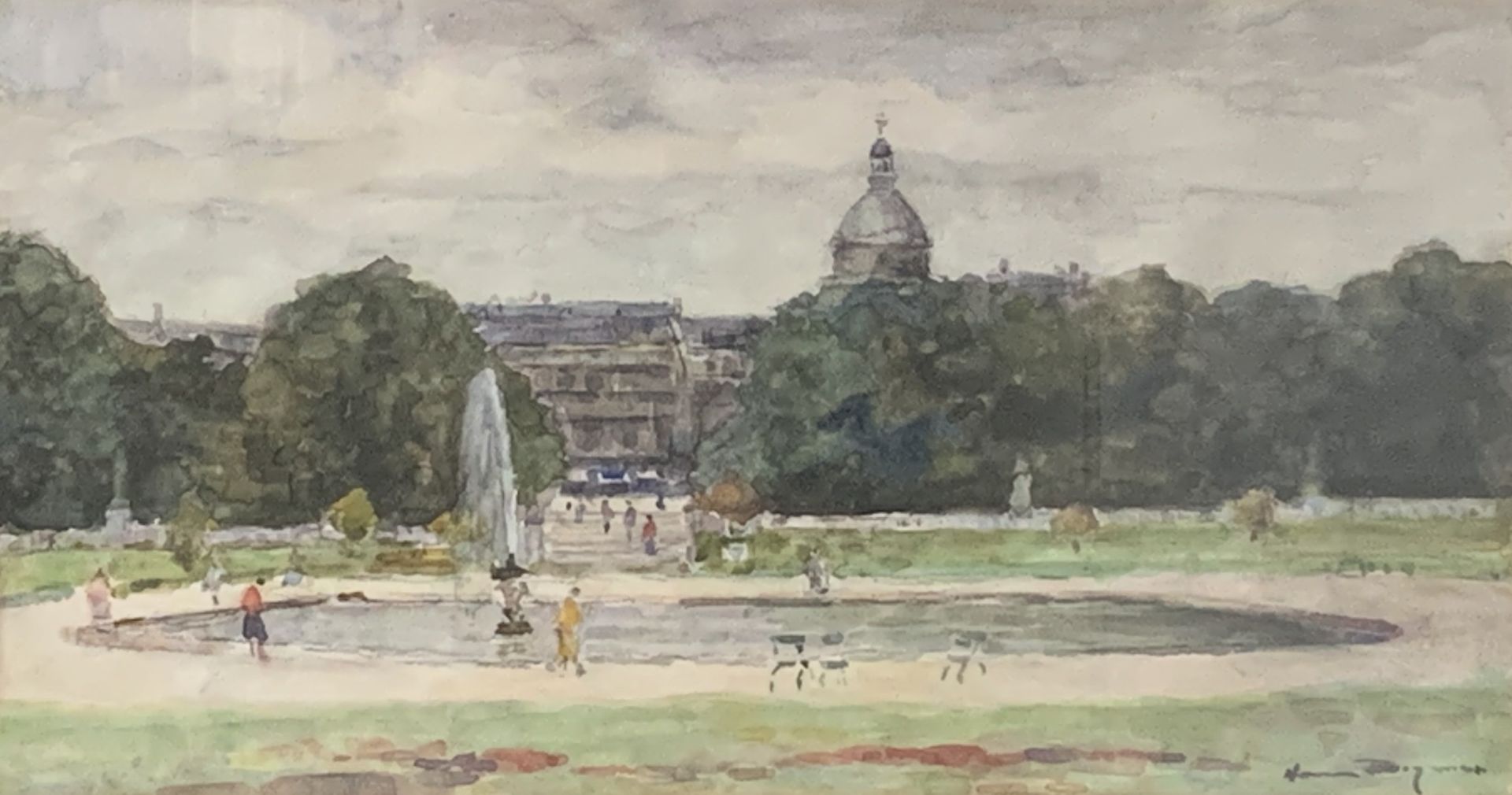
Equally impressive are the watercoloured floral still lifes, with soft colour transitions and subtle light effects to create intimate atmospheres and emotional depth, where Bogman illustrates his mastery in the use of watercolour.
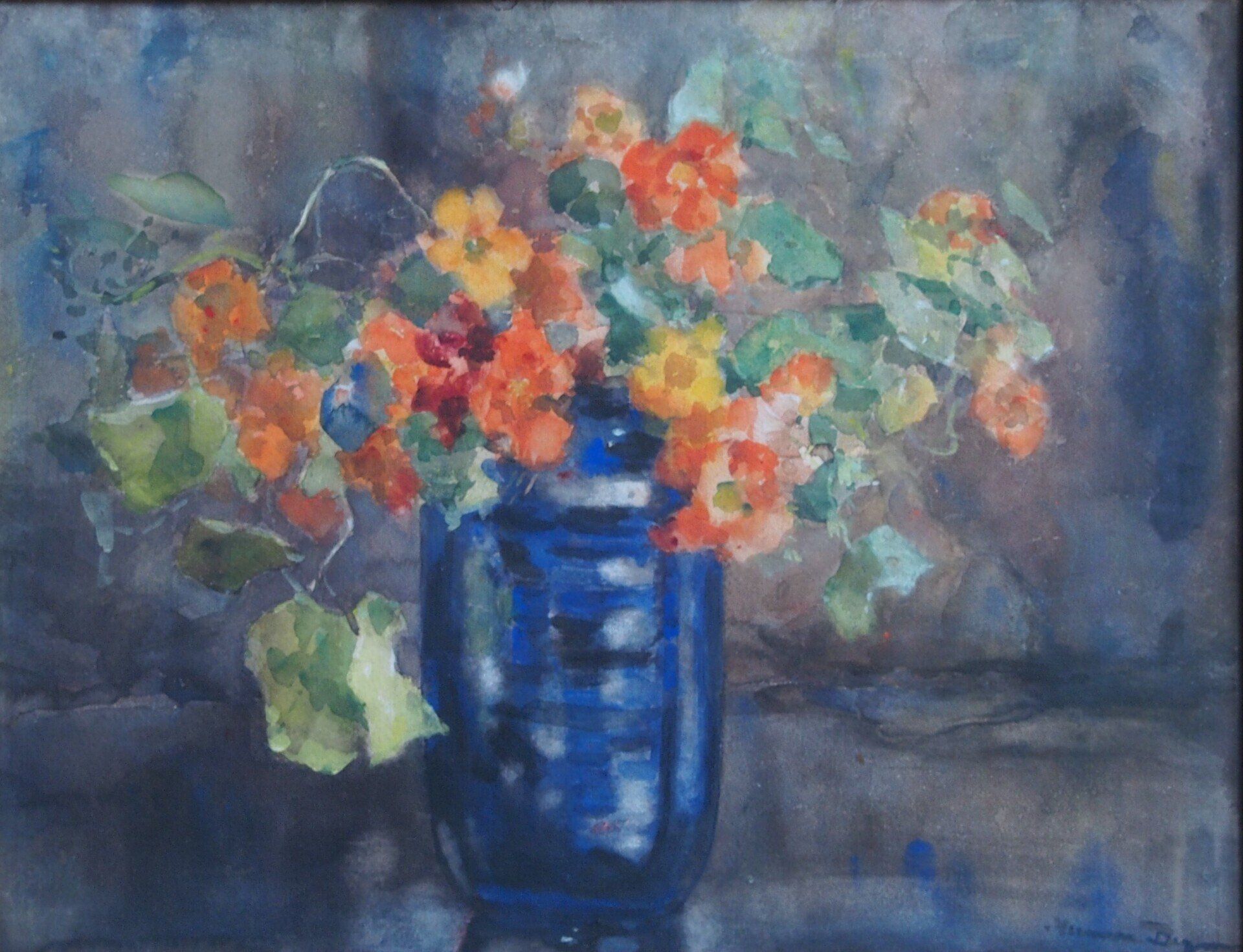
His watercolours, ranging from vibrant flower arrangements, interiors, or city views to subdued still lifes with birds, shells, or mushrooms, testify to a profound observation of his subject and an unparalleled sense of composition and colour.
Bogman's contribution to the art world extends beyond his individual achievements. As one of the founders of the Hague Watercolourists, he played a crucial role in the revival of the watercolour technique in the Netherlands, pushing the boundaries of this medium and exploring new possibilities for expression and interpretation. His works remain a source of inspiration and admiration, testifying to his lifelong dedication to the art of painting.
In the legacy of Herman Bogman, we find an artist whose work bridges tradition and innovation; between oil paint and watercolour; between the ability to depict a serene still life and the lively, built environment. All works, each with its unique charm and beauty, remain a testament to his artistic journey and his tireless pursuit of perfection in art.
https://www.adelweinkunst.nl February 2024
